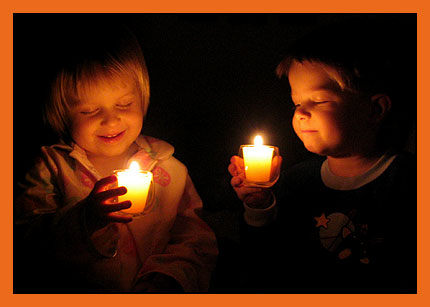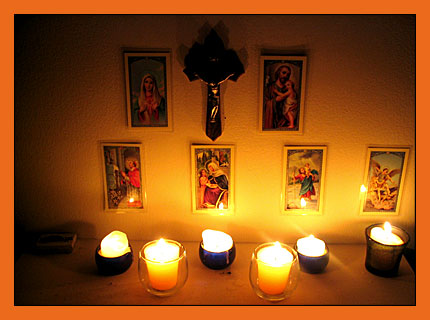(In response to Ken Shepherd’s comments below about the “Messiah” being fine for Christmas.)
Ken, we’re running into one of the big differences between the liturgical and non-liturgical Christian traditions (and no matter how much Evangelicals like to deny it, Evangelicalism is as much a tradition as Roman Catholicism.)
You say, “…Christianity is not about cycles, it’s about the linear unfolding through time of God’s eternal plan towards the end of this age and the inauguration of a new heaven and a new earth.” In the Catholic view, the Christian life has a very strong cyclical component. We celebrate the birth of hope in winter, as the days begin to lengthen; we do penance before Spring so we can celebrate the resurrection of Christ.
To the Catholic, there is nothing wrong with following the cues of nature as we live out our baptismal vocation. Nature was created good by God, and we must adapt our lives to it even in the modern world. Those two facts urge us not to keep a constant focus on one aspect of the Christian mission — spreading the word of God — to the exclusion of others. Sometimes we should preach Jesus Christ, and sometimes we should merely adore and worship Him. The remembrance of his birth is an occasion for the latter.
Evangelicalism, as the name implies, has an omnipresent emphasis on conversion and downgrades adoration to a lower priority. What about the prophetess Anna, who “never left the temple but worshiped night and day, fasting and praying” (Lk 2:37)? Does the Evangelist imply that she should have been out proclaiming the Word, a la John the Baptist? No. She was living out her vocation: to pray for her fellow men and to adore God in the one place in the world where he dwelled in a special way. Clearly her example is one way to live out the Christian life.
To everything there is a season. There is a time for the Cross; but for now, it’s still off in the distance. This is the season to kneel at the Christ child and be astonished once again that God wanted to become one of us.


